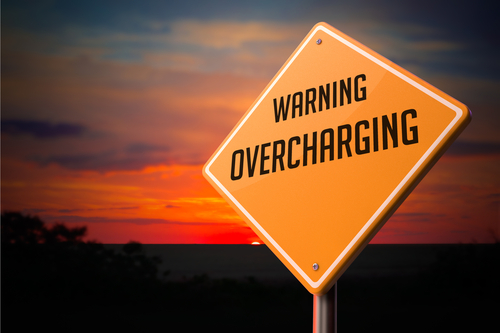Buying a house often involves spending your own cash upfront. But even if you prepare financially for a purchase, you may be surprised by the number of fees charged by mortgage lenders and brokers. There are administrative costs associated with each mortgage loan, and unfortunately, you’re responsible for paying these expenses. The amount you’re charged by a bank or broker varies depending on the company you’re working with.
Mortgage fees have a big impact on how much you actually spend for a house, so it’s important that you’re not overcharged. Here’s how to protect yourself.
1.Clean up your credit history
Fixing a poor credit history is one of the best ways to save money on a mortgage loan. You don’t need an impeccable credit history to qualify for a mortgage, but a high score can almost guarantee a low interest rate, plus applicants with the highest scores pay the least amount for private mortgage insurance (PMI). You can qualify for a conventional mortgage with a credit score as low as 620, but you’ll qualify for a more favorable rate with a credit score in the 700s or 800s.
2. Compare mortgage costs with different lenders
Within three business days of applying for a mortgage loan, the lender is required to provide a Good Faith Estimate (GFE) which breaks down the terms of the mortgage loan—interest rate and closing costs (loan origination, appraisal, points, third-party fees). Although a rough estimate, this documents provides an idea of what you can expect to pay.
Mortgage lenders and brokers charge different fees for different services, so it’s important to get a free quote from more than one mortgage provider. If you only receive one estimate, there’s no way to know whether a particular lender’s fees are reasonable or competitive, and you could end up paying more for your mortgage loan. Take the loan origination fee for example. This is the lender’s charge for originating the loan and its paid at closing. Lender’s typically charge between 1 percent and 3 percent to originate loans. For a 30-year $200,000 mortgage, that’s a $4,000 difference.
A Good Faith Estimate contains a lot of figures, but you should review each quote you receive and make side-by-side comparisons to avoid getting robbed by a lender or broker. Also, don’t be afraid to question a particular fee. For example, if you’re working with a mortgage broker and this company charges an underwriting fee, ask the broker to remove this fee. Mortgage lenders underwrite mortgage loans, not brokers. Therefore, this fee is only justified when charged by an actual lender.
Reconsider Discount Points
Discount points are a type of prepaid interest that buys down your mortgage rate. Points can lower your mortgage rate and monthly payment, but buying down your rate may not be necessary.
One discount point equals 1 percent of the loan amount, and on average, each discount point reduces your interest rate by 0.25% APR. If you receive a 30-year $200,000 mortgage loan at 4% APR, paying two points at 0.25% APR per point can reduce your interest rate to 3.5%. This lower rate can also reduce your mortgage payment by $50 a month. But unfortunately, discount points are paid at closing and increase the amount of upfront cash you need to purchase a property. Since you’re paying 1 percent per point, buying down the rate means you’ll pay an additional $4,000 in closing costs.
Mortgage lenders look for different ways to increase their profit, and your lender may recommend that you buy discount points. What you need to realize, however, is that buying down your mortgage rate only makes sense if you’re going to live in the home and keep the original mortgage for several years.
If buying points, you should allow enough time to breakeven and recoup what you paid at closing. So if buying down the mortgage rate saves $50 a month, and you paid an extra $4,000, you shouldn’t sell or refinance the house for at least six or seven years. If you move or refinance sooner, you would have paid the extra money at closing for nothing.








